Best Legendary New England Sports Figures | Yankee Archives
Well, some of the Best Legendary New England Sports Figures. In a region as rich in sporting tradition as New England, it’s tough put a limit on the number of legendary figures, so when we set out to include a few as gifts in our special 80th Anniversary Issue (“80 Gifts New England Gave to America,” September/October 2015), […]
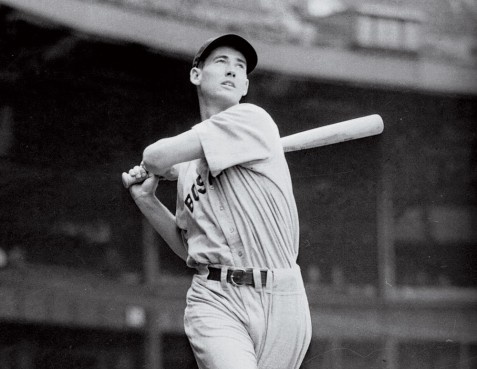

Photo Credit : Ted Sande/AP Images
When memory plays images of that Williams swing, we catch him in stillness, wound on the invisible axis of his balance, turned on himself like a barber’s pole in its shapely curving. As the mind’s carousel switches from one image to another, from the Boston Post all the way to Sports Illustrated, the gallery of spirals becomes a helix doubled and tripled by repetition. Ifwe flip these pictures fast enough, they become one sleek, mighty ripple through an unlucky pitcher’s pitch—starting from the attent cat-coil of waiting, releasing in a surge of pivoting hips to extend powerful arms, concluding with the satisfying recoil of the follow-through. There’s motion implicit in every millimeter of arrest, always turning on itself, powerfully contained within its cylinder.
In his book The Science of Hitting, Ted Williams makes the observation—with Heraclitus, Longinus, and Freud—that we progress by the reconciliation of opposites, dialectics or irony here applied to hitting a baseball: “It’s a pendulum action. A metronome—move and countermove … You throw a ball that way, you swing a golf club that way, you cast a fishing rod that way.” Always thesis and antithesis roll into synthesis. You hit that way, as you write a poem or drive a car or pitch hay that way: move and countermove. You also play a piano that way.
—”That Swing,” by Donald Hall, July 1991
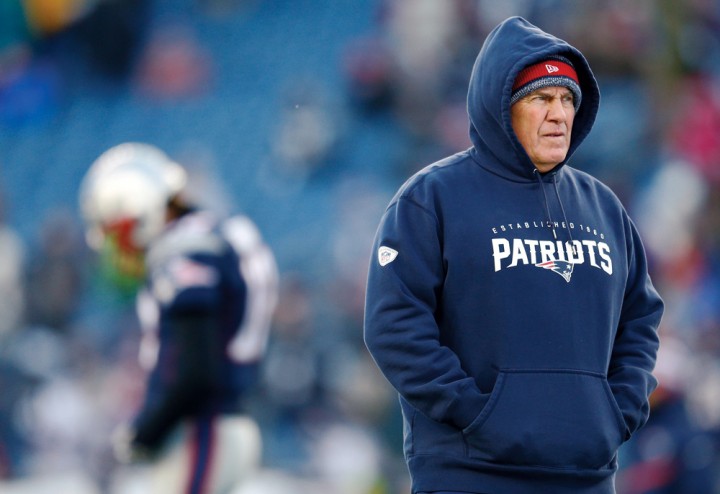
Photo Credit : Jim Rogash/Getty Images
True, New England Patriots head coach Bill Belichick grew up in Maryland, but he attended prep school and college in New England and has lived here since 2000—and every known cliché of the stubborn, standoffish, tenacious, hardworking, independent, resilient, ingenious, and maybe even a tad slippery Yankee seems to have clung to him like a burr or a cold, wet sweatshirt. He’s taciturn and keeps things close to the vest, with all the sentimentality of Cotton Mather and a wardrobe that makes him look more ready to tap maple trees in a Vermont mud season than to coach a Super Bowl run. In Bill New England trusts, and “Just do your job” could be the motto of an entire region. Still, he does have a fondness for shiny new things. Like Lombardi Super Bowl trophies. — Ian Aldrich
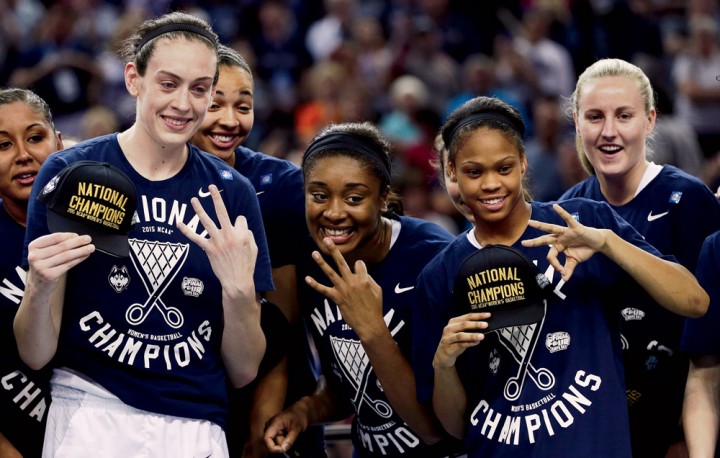
Photo Credit : John Raoux/AP Images
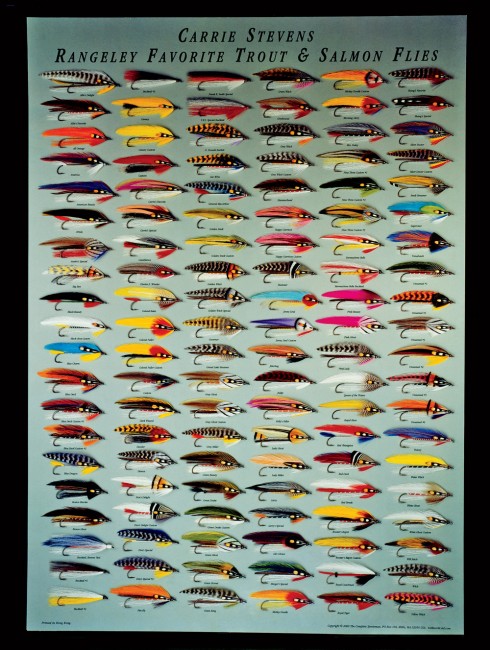
Photo Credit : Courtesy of Ingrid Sils.
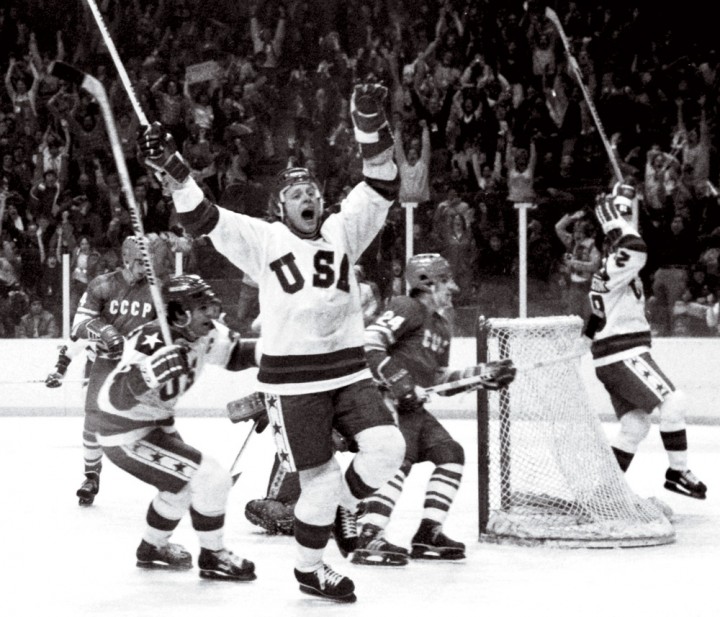
Photo Credit : Photo by Red Grandy. Reprinted courtesy of Stars and Stripes © 1980
Every time you expect something from Michael, he comes through. The good Lord must have been on his side from the start. It was uncanny. The score was 3–3 in the Russian game, and I’m sitting next to my wife, and I said, ‘You know, Helen, Michael’s not done nothing yet.’ I says, ‘C’mon, he’s due.’ I no sooner got done talking than I see the puck slide across to him. And as soon as he got the stick on it I yelled, ‘Shoot, Mike, shoot! Don’t waste time!’ And he did. He just let it go. I saw that net stretch and I said, ‘Oh my God, that’s it?’ It was beautiful. And I started to think, This goal here could be a big thing. If it could stay up with no other team scoring. I knew the impact it was going to have. I held tight to my St. Anthony’s medal. ‘This is for Michael,’ I said. ‘Make this thing end 4–3. No more, no less.’ ’Cause I knew what would happen. He’s the captain. He’s got the winning goal. And the people will never forget that.”
— “The Celebrity,” by Eugene “Jeep” Eruzione, February 1981
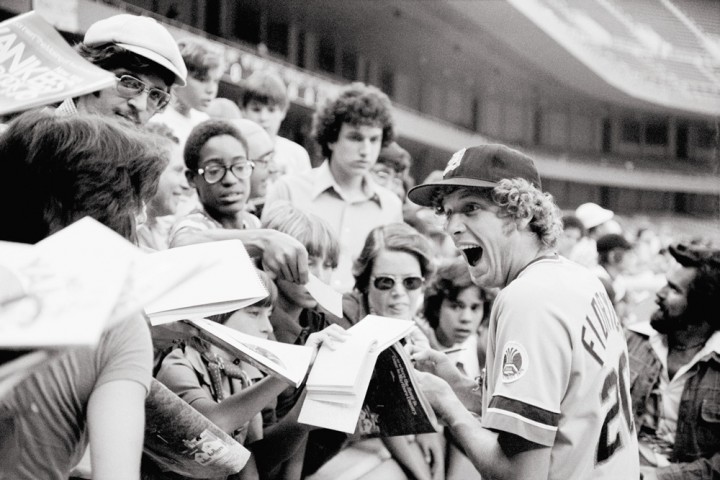
Photo Credit : Bettmann/Corbis/AP Images
In the summer of 1976, at the age of 21, Mark “The Bird” Fidrych, the man who talked to the baseball and patted the pitcher’s mound, enjoyed the briefest, most spectacular pitching career in the history of baseball. His talent and original idiosyncratic personality, which had long been known to his friends growing up in Northborough, Massachusetts, blasted into the living rooms of America. Many women, especially women, started watching baseball for the first time. His elastic rotations, the elated pirouettes, the way he would dance out across the field to congratulate his Detroit Tigers teammates after a good play—all those little things that no one had ever seen a ballplayer do before—became etched into America’s consciousness. For one flickering summer, The Bird became a household name. He showed everyone, sports fans or not, that sports could transcend wins and losses, that one radiant new star could shine so brightly he could make everyone smile.
—“The Bird Is Still the Word,” by Edie Clark, June 2001

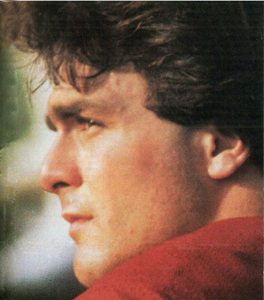
Photo Credit : Dick Flutie

Photo Credit : Aldrich, Ian


